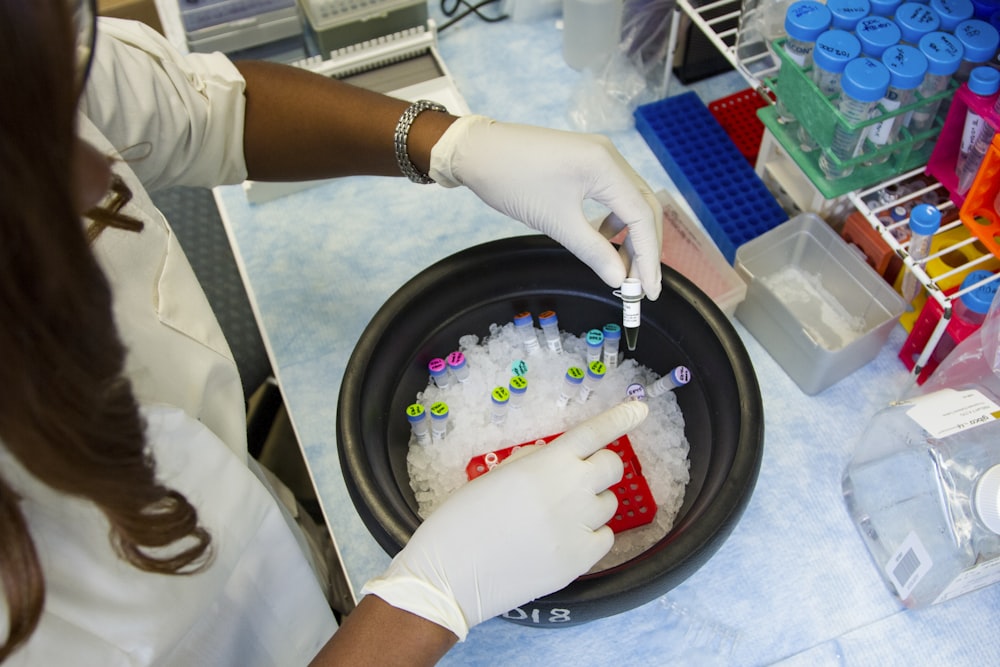Week In Review: AffaMed Announced US Approval To Start Clinical Trials
Image Source: Unsplash
Deals and Financings
- Shanghai AffaMed recently in-licensed ex-Asia (plus Japan) rights to a novel bispecific biologic molecule aimed at retinal vascular diseases from AskGene Pharma of Southern California (see story). On Saturday, AffaMed announced US approval to start clinical trials of the candidate, AM712, a dual inhibitor of vascular endothelial growth factor (VEGF) and angiopoietin-2 (Ang-2), in patients with neovascular AMD. AffaMed will have exclusive rights to develop, manufacture, and commercialize AM712 in the territories. Further details of the agreement were not disclosed.
- Shanghai SciNeuro Pharma and Alamar Pharma of Fremont, CA formed a drug discovery collaboration that uses Alamar's Attobody™ platform to discover novel antibodies for neuroscience targets specified by SciNeuro. The multi-program collaboration has already discovered candidates (see story). The Attobody™ platform produces a diverse pool of antibodies with single-digit picomolar affinity and high levels of specificity, according to Alamar. SciNeuro will have exclusive rights to the candidates, while Alamar will receive payment for research services, plus milestone payments and royalties.
Trials and Approvals
- China's National Medical Products Administration approved Pfizer's (PFE) Paxlovid, an oral COVID-19 therapy for adults who have mild to moderate COVID-19 and are at high risk of progressing to severe disease (see story). The approval is conditional, based on Pfizer providing additional data. In December, Pfizer said final trial results showed Paxlovid reduced the chance of hospitalization or death by 89% if it is administered within three days of the onset of symptoms, and by 88% if given in the first five days of symptoms. The approval was the first foreign-developed COVID-19 product approved in China.
- Suzhou Innovent (1801.HK) reported that IBI306, the company's recombinant fully-human anti-PCSK-9 mAb, met the primary endpoint of lowering low-density lipoprotein cholesterol in two China registrational trials (see story). One of the trials enrolled patients with non-familiar hypercholesterolemia (non-FH) patients at high/very high cardiovascular risk and the second trial enrolled patients with both non-FH and heterozygous familial hypercholesterolemia. Innovent, which has now completed three registrational trials of the candidate, will release data from the trials at an upcoming academic conference.
- Nanjing TransThera Sciences was granted permission to start US trials of its non-covalent reversible Bruton's Tyrosine Kinase (BTK) inhibitor in patients with B-cell lymphomas (see story). The company said its non-covalent BTK candidate, TT-01488, is differentiated from the five already-approved BTK drugs because each of the five form covalent bonds with the C481 site of BTK. When the C481S mutation occurs, patients become resistant to these drugs. The global market for BTK drugs is over $7 billion and growing, especially in China.
- Suzhou Gracell Biotechnologies (GRCL) reported a China Phase I trial of its dual targeting autologous CAR-T candidate has begun in patients with B-cell non-Hodgkin's lymphoma (see story). GC012F, which targets B cell maturation antigen (BCMA) and CD19, uses Gracell's FasTCAR technology for one-day manufacturing of the CAR-T. The Phase I investigator-initiated trial (IIT) is the first study evaluating GC012F as a therapy for relapsed or refractory B-NHL. Another China IIT investigating the CAR-T candidate in patients with relapsed/refractory multiple myeloma is already underway.
- Sirnaomics (2257.HK), a Maryland-Suzhou RNA biopharma, received a "safe to proceed" letter from US FDA to begin trials of its lead small interfering RNA (siRNA) candidate (see story). The company ultimately intends to test STP707 in patients with Primary Sclerosing Cholangitis, a rare disease associated with liver fibrosis. Initially, the Phase I trial will enroll 30 healthy volunteers who will receive the drug intravenously. Sirnaomics expects STP707 will prevent liver fibrosis. The company is also conducting Phase II China and US trials of STP707 for squamous cell carcinoma in situ.
- Nanjing IASO Biotherapeutics and Suzhou Innovent announced that their partnered BCMA CAR-T candidate was granted Orphan Designation in the US for relapsed/refractory multiple myeloma (see story). The two companies are conducting a pivotal trial of CT103A in China for the indication. High doses of competing CAR-T therapies for multiple myeloma are effective, but the side effects can be difficult and patients may relapse. A second dose is usually not effective. CT103A, which was designed to be potent and persistent, addresses these issues.
- Nanjing Legend Biotech (LEGN) announced the US FDA put a clinical hold on an early stage CAR-T therapy after the first patient was dosed (see story). LB1901 is an autologous CAR-T therapy targeting malignant CD4+ T-cells. It is being tested in patients with relapsed or refractory T-cell lymphoma (TCL). After noticing the patient had low CD4+ T-cell counts, Legend paused the clinical trial and notified the FDA. The patient has not experienced any drug-related serious adverse events.
Company News
- Based on sales of its COVID-19 mRNA vaccine, Moderna (MRNA) announced plans to open subsidiaries in four Asian countries -- Hong Kong, Singapore, Taiwan, and Malaysia (see story). Although mainland China was not included in the list, the company's CEO, Stéphane Bancel, told the South China Morning Post that Moderna will hire about 1,000 people for the Hong Kong office, which will be in charge of forming Asia partnerships for new vaccines. Moderna, which is headquartered in Cambridge, MA, also announced ambitious plans for developing new mRNA vaccines to expand its offerings post-COVID-19.
Disclosure: None
Comments
Please wait...
Comment posted successfully
No Thumbs up yet!




